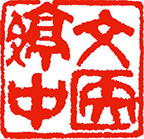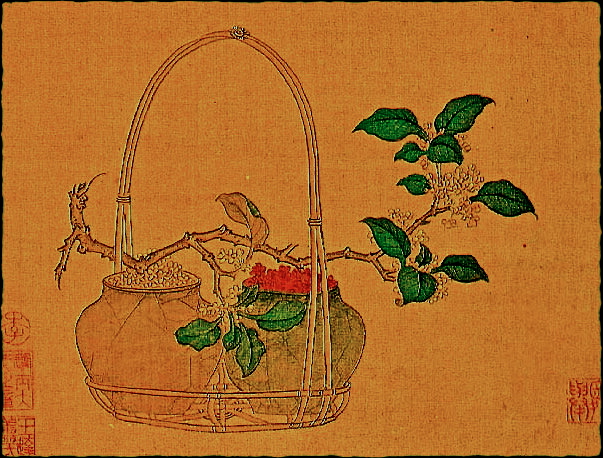Food is simple – – It is our approach to it that can be complicated and misleading. In other words, simple is not simply convenient or what our taste buds crave. It is not a philosophy or a fad that can’t sustain us. The food we eat should be as nourishing as it is tasty but in fact, our tastes and dietary habits may diametrically oppose what supports well-being and enhances our health and wellness. To quote Albert Einstein, “Theory without practice is sterile; but practice without theory is blind.” Food can be a cure and antidote if chosen for the nourishment it provides or it can trigger and factor in to a multitude of disease conditions. Good health and vitality are dependent upon strong Qi and blood. Food choices, quality of food, and preparation methods are therefore incredibly basic, yet critical elements of sustenance. Eating is a pleasure and it is a powerful component in our lives to a far-reaching extent. Traditionally, the Chinese considered food to be medicine; if diet failed to correct a condition only then was a doctor consulted and further medicinal treatment sought.
The 5 elements considered in oriental medicine reflect both organ as well as energetic inter-play within. Foods classified by their intrinsic thermal properties and by their correspondent 5 element tastes enter determined meridians and organs. This interplay of energetics can guide us to selecting foods that address our state of health. In traditional dietary practice the taste and the inherent thermal nature of foods, the same as in Chinese herbal medicine, determines the organs and systems that it adjusts. A food’s therapeutic actions as it enters the body are distinguished by which of the 5 flavors it possesses. A small amount of the flavor itself penetrates to nourish the body and to therapeutically revive physiological functions.
One of the most influential classical texts in oriental medicine, The Ling Shu or ‘The Spiritual Axis,’ an ancient document attributed to the Yellow Emperor and his ministers, circa 2600 BC, first gave explanation of the effects of the five dietary tastes as they affect the body.
Simple Food Wisdom and Suggestions to Clarify Complexities
Sour taste adjusts the Liver: The sour taste goes to the sinews and nerves. In over abundance sour flavor can upset the Liver so should be used sparingly if a person suffers from chronic pain. Foods with inherent sourness are heating and can complicate patterns from excessive damp heat and will consequently exhaust spleen Qi. If the Liver is in a state of imbalance and disease one should limit or eliminate sour and pungent foods (controlling cycle of metal in the 5 elements).
Bitter taste adjusts the Heart: The bitter taste goes to the bones, and an excess of it should be avoided in bone diseases. Bitter flavor is the most drying and so is the prominent choice to rid damp heat. In excess and for certain constitutional types, bitter dries the valuable moisture of the spleen and stomach. If the Heart is diseased one should limit or eliminate foods with an inherent salty taste (control cycle of water).
Sweet taste adjusts the Spleen: Sweet taste adjusts the energy and function of the spleen which affects the flesh and muscles. A modest/small amount can accent the spleen and stomach earth energy and function. Whereas, an excess of inherently sweet food can weaken the spleen causing plumpness of the flesh and tissues, and weakness of the muscles. An excess of sweet food cools, engenders moisture and causes stuffiness in the Heart Qi. If the Spleen is diseased one should eat little or no sour foods (control cycle of wood).
Pungent taste adjusts the Lungs: Medicinally, a conscientious usage of hot, pungent spice can open and benefit the energy of the lung (and large intestine) by dispersing mucus that afflicts them. Too much pungent taste however opens and scatters Qi and should be avoided if Qi is deficient or if yin fluids are already dry. An excess of spice in the diet desiccates yin/vital fluids in the body, but it can be useful in drying excessive dampness in the body, so tuning in and striking a balance is important. Pungent foods can create heat and repletion in the vessels, dry fluids that nourish the tendons, and typically result in tendonitis. If the Lung is imbalanced one should not consume bitter taste in food (control cycle of fire).
Salty taste adjusts the Kidneys: Medicinally, a conscientious usage of salty flavored foods can supplement the energy of the kidney. However, salty flavor is drying to the Blood and should be avoided in significant amounts in conditions where there is blood and essence deficiency. Too much salty flavor taxes and stagnates the Heart Qi, and it taxes the Qi of the bones and withers the flesh due to its heating nature. If the Kidney is diseased one should limit or eliminate foods with an inherently sweet flavor (control cycle of earth).
Seasonal Eating
As a rule of thumb, eating that is aligned with the basic nature of each season offers a harmonizing effect to the over-riding energetic excesses and deficiencies imposed by nature at that time of year. This simplified approach to eating may not always be suited for treating some pronounced illnesses but ensures a resonance with the natural environment that one is a part. Yin: During the most yang time of the year, summer time, relying mostly upon yin foods; foods which naturally ripen to fruition in the brightness of the yang growing months, counteract the excesses of the season. Generally, vegetables tend to be yin and contain the strongest inherent moistening, yin energy; natures antidote which counteracts the effects of the environment. Preparation methods also affect the amount of yin energy that food contains: Steaming increases yin and thus, a person who is yin deficient benefits even more from eating steamed foods at any time of the year. Foods that accentuate Yin: Asparagus, millet, barley, tofu/soy, seaweeds, mung beans, black beans, potato, wheat, crab, dairy, butter, soft cheeses, aloe vera. By the same token; Yang: Foods rich in yang energy are those which develop during the contracted growing cycles and harbor a storehouse of nutrition that can nourish conditions of yang deficiency and carry the body because they have a warming and stabilizing effect during the winter months, the most yin time of the year. Generally, meat and protein-based foods contain the strongest inherent yang energy. Foods that accentuate Yang: Carrots, ginger, scallion, cloves, black beans, fenugreek, walnuts, fennel seeds, oats, eggs, quinoa, sardines, salmon, cinnamon, ginseng
Dietary Basics
Simple food combinations, No overeating, Always freshly picked, organic, locally sourced fruits and vegetables, Root vegetables which nourish our own roots, very little or no animal flesh Avoid: Alcohol, Coffee–even decaf, Black tea and Soft drinks, Fried, Greasy and Rich foods, consumption of tropical fruits and juices, and All processed and junk foods.
Stir-frying: Yang energy increases in food that is prepared by stir-frying, especially over a (gas) flame. Since stir-frying infuses cooked food with extra yang Qi a person who is yang deficient, as well as most people during the winter months will benefit.
Steaming and Blanching: A moistening, purifying and ultimately yin cooking technique. Foods that have been steamed or blanched become infused with condensation and accent the fluid added by this cooking process. When steamed food is ingested it engenders heat cooling and yin preserving to the body.
Baking: Creates a cauldron of heat which is absorbed by the food and imparted in the digestive process.
Soaking: Makes seeds, grains, nuts and beans more digestible.
Roasting and Toasting: Increases bitter flavor in foods.
Stewing: Offers balanced, hydrating, warm energy to foods and cultivates greater inherent digestive nourishment.
Pressure Cooking: Holds energy in.
Boiling: Releases heat and essence of foods.
Sautéeing (long cook method): Softens foods and stores inherent QI.
Braising: Moistens foods.
Buy Local: Buy directly from the farmers who’s farms have a high ethic in farming practices.
Certified Humane: Work with farmers who unequivocally treat all of their animals respectfully and humanely. Further, do the information seeking that ensures that, if you do consume animal products, the cultivation and slaughter of an animal is carried out with the least stress possible. This is truly important for the well-being of our world consciousness. Realize terms like ‘cage-free’ or ‘organic’ scrawled on cartons is now meaningless commercial “greenwashing.” These terms are too broad to trust at face value anymore. If you buy eggs, meat, and dairy consider supporting products bearing these labels: Certified Humane, American Humane Certified, Animal Welfare Approved.
Pasturized: Seek out products from animals that have access to pasture and are fed exclusively on pasture – although availability of such products is often harder to come by.
Cultured or Raw: Dairy products are most healthful when consumed in their raw or cultured state.
Seasonal: Focus meals on produce that is in season locally per week. Heirloom fruits and vegetable varietals encourage nutrient diversity.
Sweeteners: No artificial sweeteners in your kitchen. Use only natural sources: honey, maple syrup, Sucanat, and Agave, but only Agave in hot geographical regions requiring Yin replenishment.
Fats: Use traditional wisdom. Eat only fats that cultures have used in good health for many generations: nothing hydrogenated, partially hydrogenated or any other fats that have not been in use for many generations.
Organic Whole Grains: In their unrefined state, sprouted or soaked.
Certified Organic: Make sure products are certified organic. Exceptions can be made for farms that have a wonderful, ecological approach but are not interested in certification.

Recommended Reading
• The Tao of Healthy Eating, by Bob Flaws.
• Chinese System of Food Cures, by Henry C. Lu.
• The Book of Whole Meals, by AnneMarie Colbin.
Exercise
Chinese theory states that diet has foundation in the etiology of all disease conditions and without changes in diet, supported as well, by exercise and general lifestyle habits, healing progress is not assured. Food cures show results only after a relatively long duration ranging from one week to a few months or longer. Moderate exercise for its own sake, differentiated from daily task-doing, has significant therapeutic value and is highly recommended for most patients. Exercise stimulates blood flow which helps to eliminate tissue toxins, strengthen the body and relieve stress. Too little exercise can lead to degenerative conditions like osteoporosis, heart disease and weight problems to name a few. Sitting or lying around can be detrimental to the energy of the Spleen. The following are common signs and symptoms of Spleen impairment: Poor appetite, bloating, indigestion, flatulence, loose stools, fatigue or phlegm congestion after eating, food cravings, poor nutrient absorption leading to malnutrition or blood deficiency, low energy, lethargy, inability to taste food, metallic taste in the mouth, pale or dry lips, bruising, bleeding disorders, varicosities, muscular wasting or atrophy, heaviness of the limbs, low of motivation, difficulty concentrating, muddled thinking, inability to process information.
Qigong, T’ai Chi and Meditative Practices, and I add in Gentle and Yin forms of Yoga, each of which are subtle, fluid forms of moving meditation and breathing that cultivate strong, rooted Qi and awareness, and which have for centuries been powerful measures that accent health and healing. Qi Gong and T’ai Chi integrate the body and mind; increasing physical flexibility, a sense of relaxation, focus and quality of life. These practices are the ultimate low-impact exercise for every age, every day. These practices cultivate sensitivity and awareness of inner equilibrium and the illumination and peace that comes from tuning-in to the energetic subtlety that lies within and that harmonizes us with our environment. Through each of these practices emerge subtle patterns from within that inspire new ways and new chapters of our existence.
“One who takes medicine but neglects diet wastes the skill of the physician.” Chinese proverb
 Copyright © 2018. All Rights Reserved.
Copyright © 2018. All Rights Reserved.
ELEMENTAL CHANGES Oriental Medical Arts.

